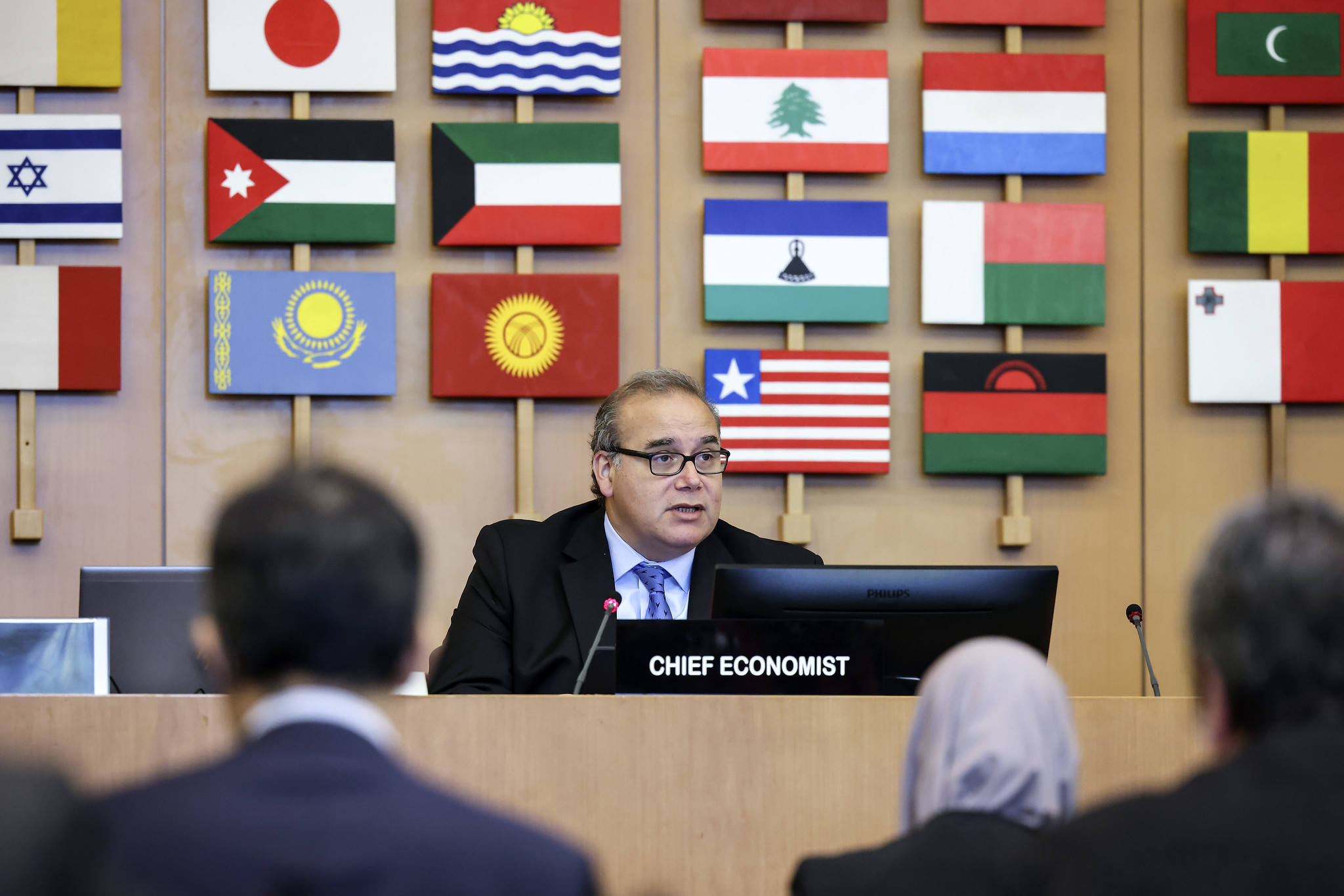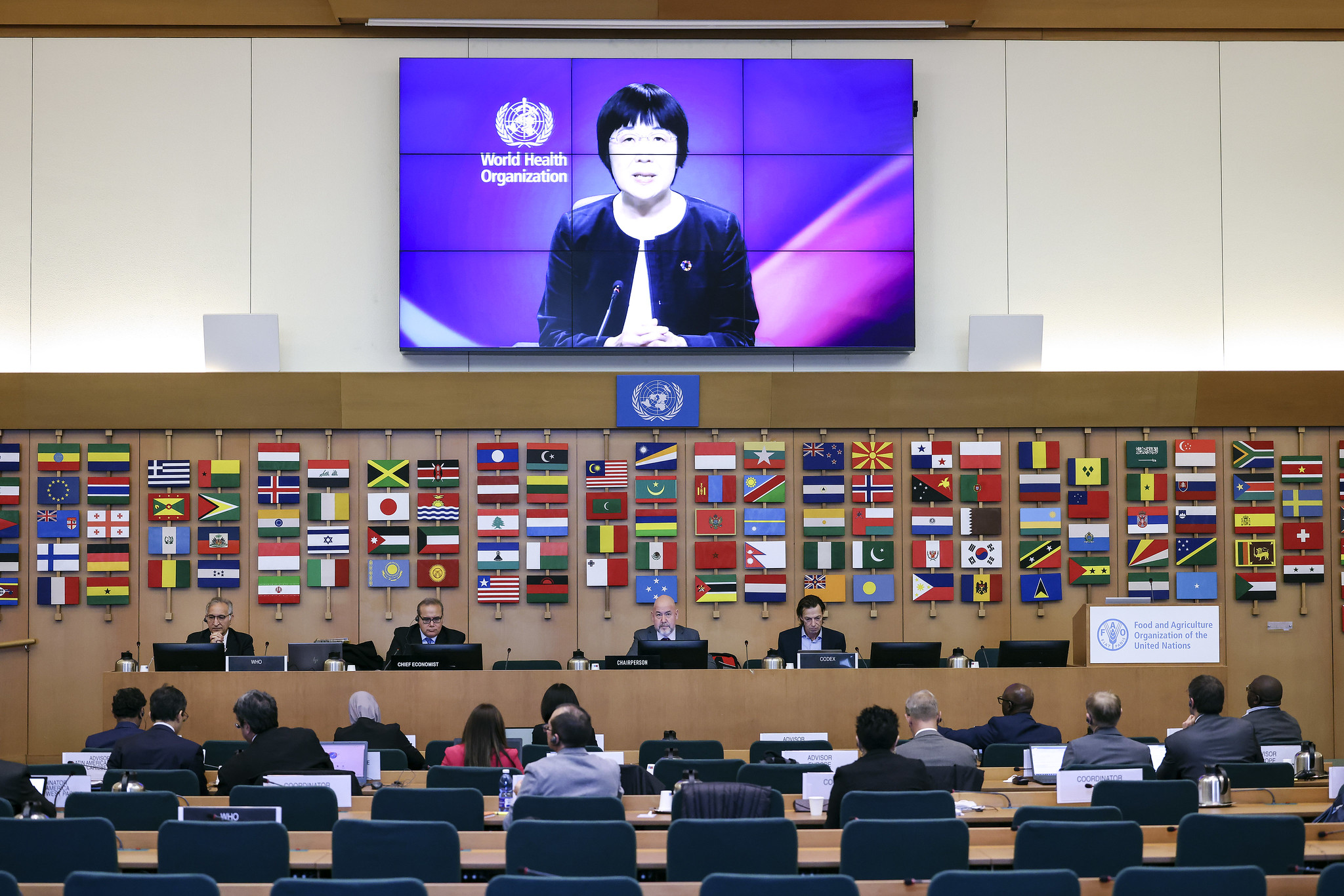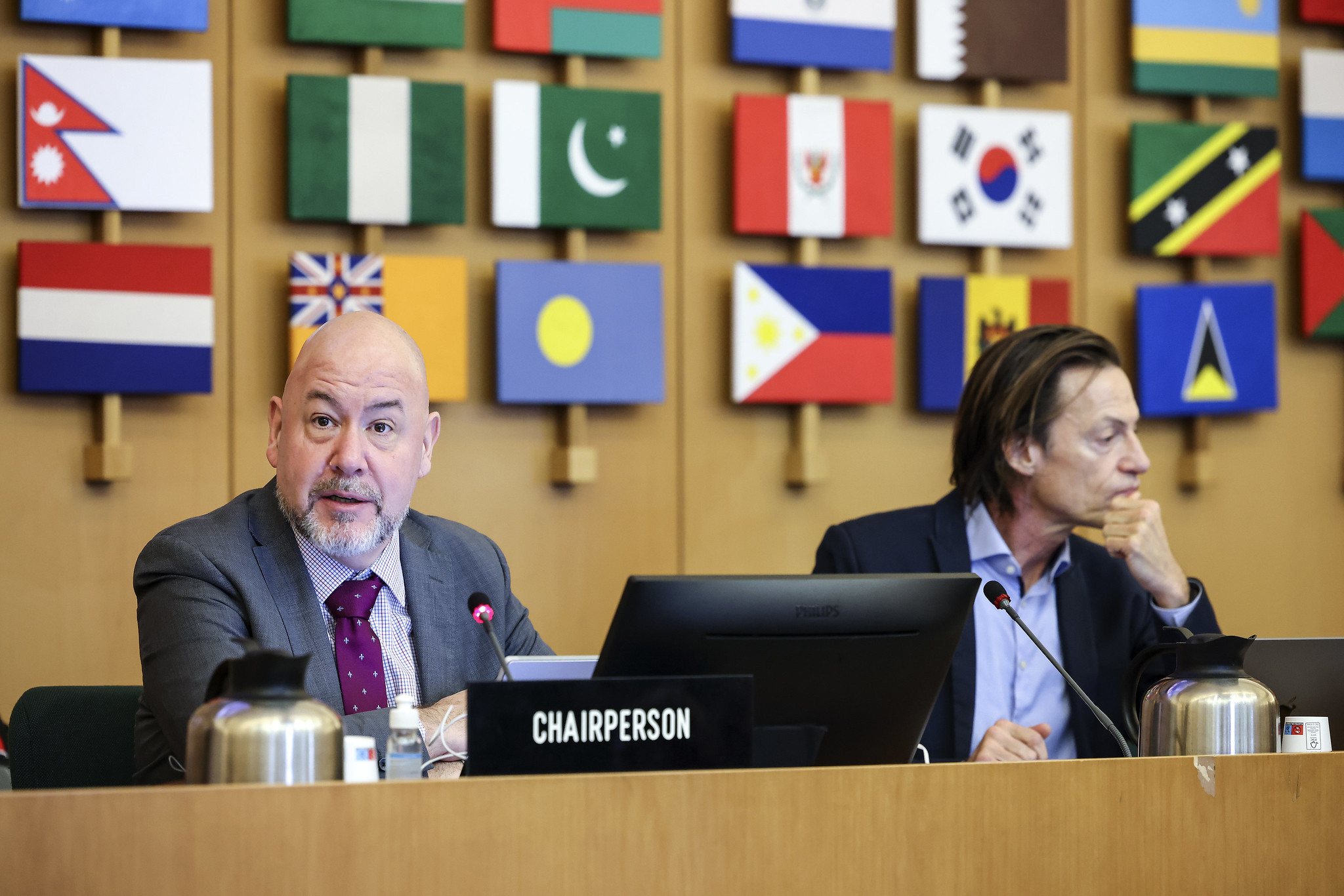Codex Executive Committee opens in Rome after two years of virtual meetings
Members gathered in a physical setting for the first time since 2020 for the opening of the 83rd Executive Committee of the Codex Alimentarius Commission being held in FAO HQ, Rome, Italy from 14-18 November 2022. Online delegates are also taking part ensuring full participation.

FAO Chief Economist Maximo Torero
FAO Chief Economist Maximo Torero welcomed delegates to the face-to-face environment which he described as “helpful when tackling the complex issues and negotiations” on their agenda. “I trust as a committee you will engage wisely and assess as a team the priority issues and the most productive way forward to ensure you build consensus in accordance with the core values of Codex,” he said.

Naoko Yamamoto, Assistant Director-General, WHO, speaking via video message
Naoko Yamamoto, Assistant Director-General, WHO, also addressed the meeting via video message, underlining the importance of the scientific advice provided by FAO and WHO to Codex and its Members. “Codex food safety, nutrition standards and guidelines should be clearly based on science. The workload of scientific bodies is increasing. That’s a good sign, but it requires adequate resources, which we attempt to secure,” she said.

Chairperson Steve Wearne (left)
The Chairperson of the Codex Alimentarius Commission, Steve Wearne, United Kingdom, described some of the topics for discussion before the Executive Committee including on operationalization of the statements of principle; on new food sources and production systems, and on a blueprint for the future of Codex. “With your valuable input through consultations, virtual discussion, and here this week I hope we will be able to … make recommendations to the Commission” he said.
Three Vice-Chairpersons, six Regional Coordinators and seven elected representatives from the geographical groups in Codex form the Executive Committee. A key function for the committee is the management of the Commission’s programme of standards development through a "critical review" of proposals to undertake work and monitoring the progress of standards development.
Learn more
Photo credit: ©FAO/Alessia Pierdomenico
At the heart of the Codex mandate are the core values of collaboration, inclusiveness, consensus building and transparency. Governmental and non-governmental, public and private organizations alike play a vital role in ensuring Codex texts are of the highest quality and based on sound science.
Codex would have little authority in the field of international standard setting if it did not welcome and acknowledge the valuable contributions made by observers. Expert technical bodies, industry and consumer associations
contribute to the standard-setting process in a spirit of openness, collaboration and transparency.
Intergovernmental organizations (IGOs) and international non-governmental organizations (NGOs) can apply for observer status in Codex in order to attend and put forward their views at every stage of the standard-setting process.
 Current Codex Alimentarius Commission
Current Codex Alimentarius Commission
Codex Executive Committee opens in Rome after two years of virtual meetings
Members gathered in a physical setting for the first time since 2020 for the opening of the 83rd Executive Committee of the Codex Alimentarius Commission being held in FAO HQ, Rome, Italy from 14-18 November 2022. Online delegates are also taking part ensuring full participation.

FAO Chief Economist Maximo Torero
FAO Chief Economist Maximo Torero welcomed delegates to the face-to-face environment which he described as “helpful when tackling the complex issues and negotiations” on their agenda. “I trust as a committee you will engage wisely and assess as a team the priority issues and the most productive way forward to ensure you build consensus in accordance with the core values of Codex,” he said.

Naoko Yamamoto, Assistant Director-General, WHO, speaking via video message
Naoko Yamamoto, Assistant Director-General, WHO, also addressed the meeting via video message, underlining the importance of the scientific advice provided by FAO and WHO to Codex and its Members. “Codex food safety, nutrition standards and guidelines should be clearly based on science. The workload of scientific bodies is increasing. That’s a good sign, but it requires adequate resources, which we attempt to secure,” she said.

Chairperson Steve Wearne (left)
The Chairperson of the Codex Alimentarius Commission, Steve Wearne, United Kingdom, described some of the topics for discussion before the Executive Committee including on operationalization of the statements of principle; on new food sources and production systems, and on a blueprint for the future of Codex. “With your valuable input through consultations, virtual discussion, and here this week I hope we will be able to … make recommendations to the Commission” he said.
Three Vice-Chairpersons, six Regional Coordinators and seven elected representatives from the geographical groups in Codex form the Executive Committee. A key function for the committee is the management of the Commission’s programme of standards development through a "critical review" of proposals to undertake work and monitoring the progress of standards development.
Learn more
Photo credit: ©FAO/Alessia Pierdomenico
 Codex and Observer
Codex and Observer
around the world since ancient times.
We might not always know where it comes from,
but we expect it to be available, safe and of good quality.









Leave a comment